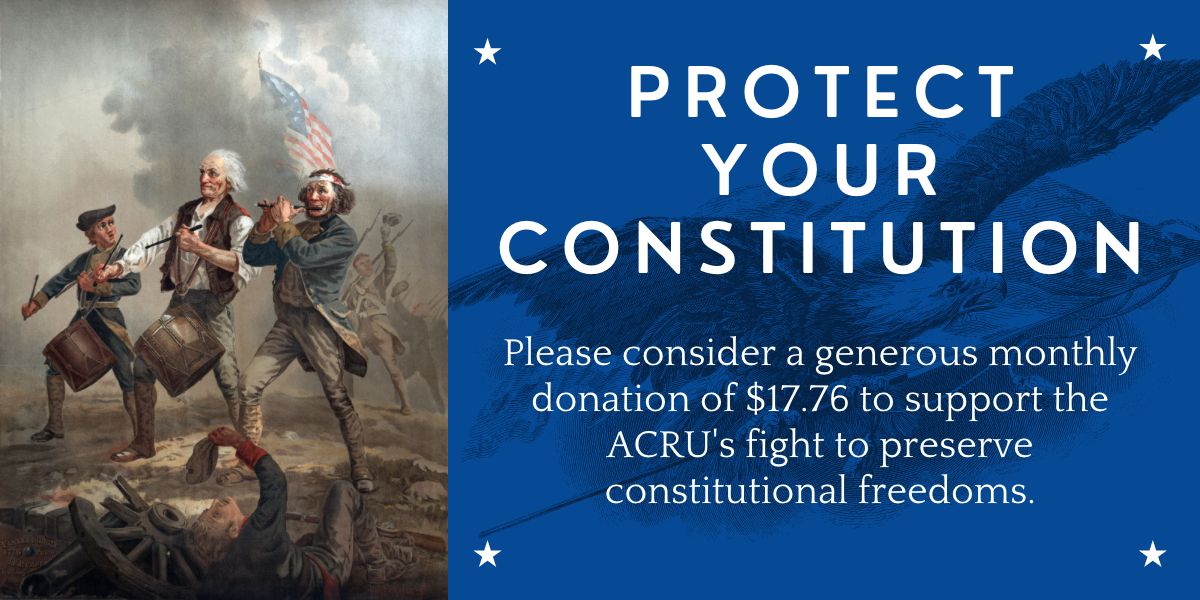Supremes Unanimously Reject Government Role in Choosing Ministers
ACRU Staff
January 13, 2012
This column by ACRU Senior Legal Analyst Ken Klukowski was published January 12, 2012 on The Washington Examiner website.
A unanimous Supreme Court rejected the Obama administration’s claim that federal bureaucrats can tell a church whom it can hire as ministers to teach its followers, even if they happen to be schoolchildren.
Writing for the court in its decision on the Hosanna-Tabor Evangelical Lutheran Church and School v. EEOC, Chief Justice John Roberts said the First Amendment bars such authoritarian dictates through a “ministerial exception” to federal employment laws.
“The members of a religious group put their faith in the hands of their ministers,” Roberts said. “Requiring a church to accept or retain an unwanted minister, or punishing a church for failing to do so, intrudes upon more than a mere employment decision.
“Such action interferes with the internal governance of the church, depriving the church of control over the selection of those who will personify its beliefs.”
Roberts said allowing government to ignore the ministerial exception would violate the Free Exercise clause of the First Amendment, “which protects a religious group’s mission to shape its own faith and mission through its appointments.”
And, Roberts said, “according the state the power to determine which individuals will minister to the faithful also violates the Establishment Clause, which prohibits government involvement in such ecclesiastical decisions.”
The case reached the high court after the Lutheran Church–Missouri Synod — which requires permanent teachers at church schools to be ordained Lutheran ministers — dismissed one such individual, Cheryl Perich, a minister-teacher at the church school in Redford, Mich.
When Perich had to take an indefinite medical leave in the middle of a school year, the church school signed a contract with a temporary teacher for the rest of the year. Perich later decided her medical condition was managed and demanded her job back immediately.
When the church replied she would have to wait until the summer, Perich sued the church. Since suing fellow Christians violated the denomination’s doctrine, the church rescinded her call to the ministry.
Perich went to the Equal Employment Opportunity Commission, which brought action against Hosanna-Tabor, ordering the church to reinstate Perich as a Lutheran minister and teacher. That was the decision the high court unanimously held to be unconstitutional.
Roberts explained that for the Founding Fathers, “the Religion Clauses ensured that the new Federal Government — unlike the English Crown — would have no role in filling ecclesiastical offices. The Establishment Clause prevents the government from appointing ministers, and the Free Exercise Clause prevents it from interfering with the freedom of religious groups to select their own.”
Roberts quoted one of the court’s early religious-liberty precedents, which “radiates … a spirit of freedom for religious organizations, an independence from secular control or manipulation — in short, power to decide for themselves, free from state interference, matters of church government as well as those of faith and doctrine.”
The high court was, however, reluctant to define exactly who is covered by the ministerial exception. In Perich’s case, she was (1) an ordained minister, (2) formally trained and ordained, (3) declared a minister by the church and publicly embraced that title, and (4) taught theology and led worship activities. Given those four factors, the court said it was confident that Perich falls within the ministerial exception.
The Roberts court also rejected the EEOC’s claim that a ministerial exception would lead to church immunity for violating child labor laws and other statutes.
While a big win for churches, the decision in Hosanna-Tabor is not as broad as some are claiming. The high court, for example, expressed no view on lawsuits that could arise from breach of contract, negligence, or intentional harms.
Even so, the decision represents a watershed in the high court’s long trend of endorsing the exclusion of religious faith from secular culture.
“The church must be free to choose those who will guide it on its way,” the high court said, this time.
JOIN ACRU's PATRIOT CLUB



